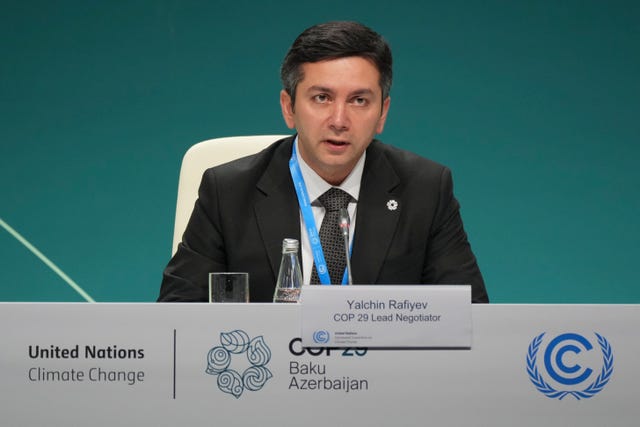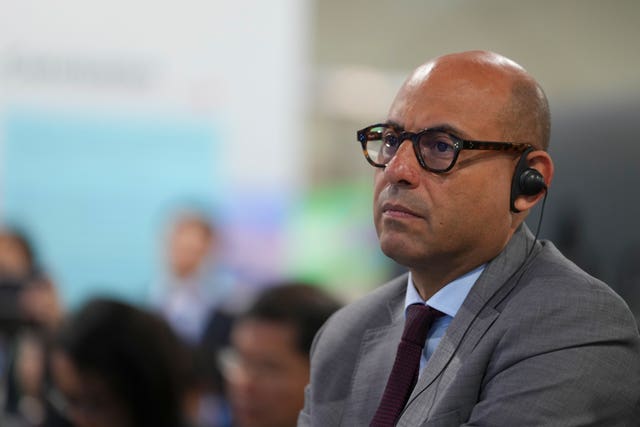The UN climate talks have been buoyed by the G20’s signal of support for a strong finance deal for poorer countries.
A communique from the G20 meeting in Brazil was welcomed as Cop29 opened on Tuesday in Baku, Azerbaijan, but it also stoked concerns over backsliding on commitments to phase out fossil fuels from energy systems after pushback from some quarters.
Leaders of the world’s biggest economies confirmed their support to shift more cash to developing countries to help them cope with climate change and green their economies.
As countries hammer out a new finance deal, economists said a trillion US dollars (£791 billion) needs to be flowing into poorer countries each year by 2030 to meet international goals to limit global warming.
The G20 said it reiterated recognition for “the need for rapidly and substantially scaling up climate finance from billions to trillions from all sources”.
Yalchin Rafiyev, Cop29 lead negotiator, welcomed the move as he spoke to reporters at the UN summit.
“We are grateful for the support they have sent us as the Cop29 presidency,” he said. “We now need to translate political will into practical work.”

While the finance talks remained difficult on Tuesday, it is understood the framework of a deal is taking shape.
But hope is waning that the summit can make progress on last year’s landmark agreement to transition away from fossil fuels in energy systems.
Stephen Cornelius, lead of climate and energy at WWF, said the commitment needs to be reinforced as a strong signal to countries putting forward their new climate action plans before next year.
“It would be great to … at least reiterate the message around fossil fuels because it is the big driver of climate change,” he said.

However, it stopped short of mentioning the pledge to phase out fossil fuels, which faced backlash from oil-rich nations such as Saudi Arabia.
Challenged on ensuring the commitment will make it into this year’s final agreement, Mr Rafiyev said the Azeri presidency has a “robust plan” to ensure a balance of outcomes at the summit which includes agreements over mitigation.
Rebecca Newsom, senior political adviser at Greenpeace UK, said finance and the phasing out of fossil fuel “align perfectly and are mutually reinforcing”.
“The UK must support a significant scale-up of public finance from developed countries, paid for through bold new taxes on the fossil fuel industry and other polluters,” she said.
She urged the UK to sign up to the Beyond Oil and Gas Alliance “to boost talks at this critical juncture”.
On the G20 communique, Champa Patel, executive director of governments and policy at Climate Group, said: “To little surprise, transitioning away from fossil fuels is not mentioned once.
“We cannot marshal the global leadership we are sorely lacking right now if we cannot state the obvious. To avoid backsliding, the G20 has to be bolder.”
Ani Dasgupta, president and chief executive of the World Resources Institute, said: “Despite sending positive signals on the energy transition and the need to scale up renewable energy and improve energy efficiency, it’s unfortunate that the G20 failed to reiterate the commitment to shift away from fossil fuels, which all countries agreed to at Cop28 in Dubai.
“At its core, finance is a question of justice. Leaders rightly acknowledged that inequality within and among countries is at the root of most global challenges and must be addressed.”






